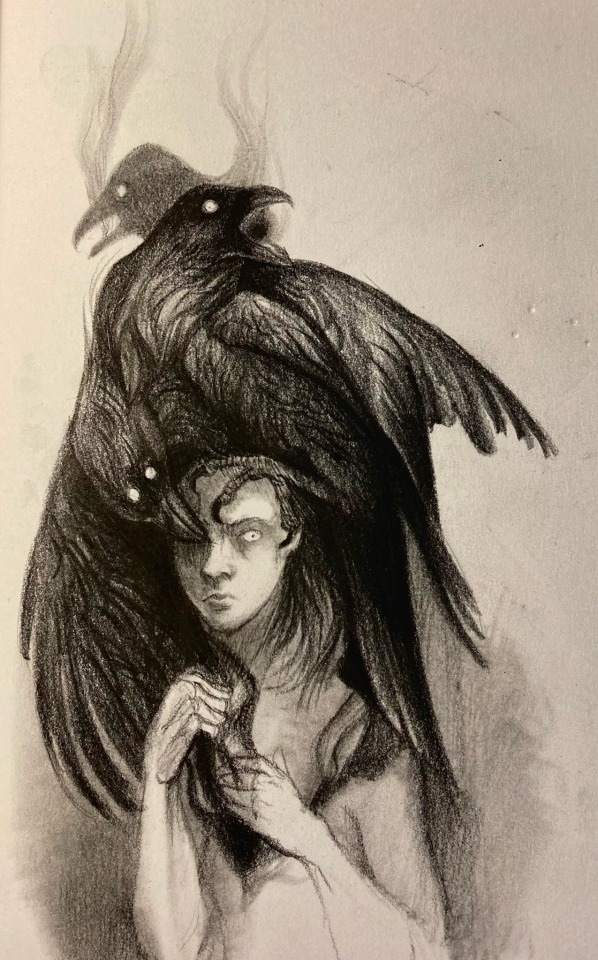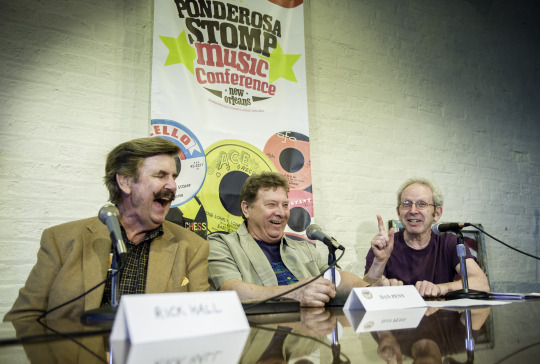#worst part is it’s a fellow artist I graduated with and whom everyone else likes
Text

Had a bit of a “regression” this past week where I had stumbled upon and subsequently ripped open an old wound.
I’m always trying to shed my grudges, but their claws are sunk pretty deeply nonetheless. Between the gaslighting and the casual disregard, it’s hard to find any closure. I have to make my own.
I broke my carbon pencil 3 times, at which point I had to call it quits.
#personal art#vent art#grudge#self portrait#sketchbook#traditional media#carbon pencil#corvids for their memory of those who wronged them#it’s been 8 years and I still find myself furious#worst part is it’s a fellow artist I graduated with and whom everyone else likes#death by a thousand cuts#I want to heal but at this point I’m worried I never will#anyway don’t verbally or emotionally abuse people who thought you were their friend#I did absolutely nothing to deserve this treatment#when you’re the only one who knows someone is an asshole#and possibly a narcissist#this would be Hot Tea if I were in regular contact with a larger number of my fellow college graduates#not like it matters but this person is a better artist than I will ever be and that stings#even if I know art isn’t really my future anymore
167 notes
·
View notes
Text
Roe Erister (Rick) Hall, 1932-2018

photo by Jacob Blickenstaff http://www.33-13.com/
Rick Hall may have been the most determined (some might say stubborn, Rick might even have owned up to bull-headed) man I ever met.
The first time I met him, I almost didn’t meet him at all.
Jimmy Johnson was the vehicle for my initial introduction in 1981. Jimmy was the guitarist with the second rhythm section at Rick’s FAME studios in Muscle Shoals (all of his rhythm sections were brilliant, this one was perhaps his most brilliant), and there had been a falling out when he and fellow members David Hood, Barry Beckett, and Roger Hawkins had decamped in 1969 to set up their own studio, Muscle Shoals Sound, in direct competition with FAME. There had been bad blood for a while, but everyone survived and thrived, and Jimmy, as affable a figure as you’re ever likely to meet in or out of the music business, had long since re-established a good, almost filial relationship with Rick.
I was just starting out on my book, Sweet Soul Music, at the time. Songwriter Donnie Fritts, a Florence native (Florence and Muscle Shoals are two of the area’s Quad-Cities), had introduced me to nearly everyone in Muscle Shoals except for Rick the year before, and now Jimmy took it upon himself to approach Rick on my behalf. Rick, Jimmy reported back to me, would be glad to do it – but when I arrived in town a few weeks later, all of a sudden, don’t ask me why, all bets were off.
This was something I could certainly live with (it was not an uncommon occurrence – very few of the people I was talking with had done interviews before, and, this may come as a shock, but not everyone is thrilled to be interviewed) – I could wait, I told Jimmy, it wasn’t the end of the world. Jimmy, however, was stricken. He saw it as a matter of honor, and he called Rick right away from his office. “I gave the man my word,” he told Rick, while I was sitting there. “You know, we’ve been friends a long time, Rick, but you gave me your word, and I gave Peter my word, and if you don’t stick by it, we’re not going to be friends anymore.”
I was more than a little mortified (and more than a little touched by Jimmy’s loyalty), but after hanging around Muscle Shoals for a few more days without hearing from Rick, I set off for Macon to talk with Phil and Alan Walden, and Otis Redding ‘s brother Rodgers, and his wife, Zelda, along with various friends and associates of Otis’.
That was where I got the call from Rick, on December 2, 1981, a Wednesday. He was, he said, willing to see me. Great! I said. When? Tomorrow, he said. I laughed, I’m going to imagine it was a kind of heh-heh-heh. Well, I’m in Macon, I said, and I’m sure I could make it by – Tomorrow, he said, making it clear by the tone of his voice that any modification was out of the question. At 7AM, he said. At my ranch.
Now Macon is at least a five-hour drive from Muscle Shoals, and it was already late afternoon, but I didn’t hesitate – and I’d like to think I still wouldn’t. (I mean, you do anything at the service of your story, right?) 7 AM tomorrow, great! I said. And I wrote down Rick’s very specific directions to the ranch (“43 South from Littleville, one mile on the right-hand side of the road, Kennedy Road 18”) on my hotel stationery.
I arrived at 7 o’clock sharp the next day, with my notebook and brand-new Sony stereo cassette recorder TCS-310 in hand. I started out, as you often do, by asking some generalized, conversational questions, just to try to establish a little rapport, but I knew immediately I had gotten off on the wrong foot just by the way Rick was shaking his head. This was clearly not the way to begin. “Well, let me start at an earlier point of my life [which turned out to be his birth],” he declared without hesitation, “and tell you what happened to me.” And he did. Four or five hours later he was still telling me, and I was exhausted. I hadn’t gotten into the Holiday Inn in Sheffield until late the previous night, and I left for Rick’s home earlier than I needed to because I knew if I didn’t make that 7 o’clock deadline, the whole thing could be off. Finally I held up my hand for the first and I think only time in my life and said, in effect, No mas. But we would go on talking, in what would eventually turn into a two-way conversation, for the next 35 years.
Read Rick’s book, Rick Hall: My Journey from Shame to Fame. Or try Sweet Soul Music for an abbreviated version of the story of a boy who grew up in the “deep sprawling, isolated woods of the Freedom Hills with the whiskey makers and whiskey runners and saw millers,” raised by a father who could barely eke out a living (“he was a pauper”), after his mother left, when he was four, to become a prostitute in his Aunt Es’s house of ill fame in the city. In all the years I’ve known Rick and his wife, Linda (the home that I visited has since become the FAME Girls Ranch, dedicated to help victims of abuse and neglect “overcome the adversity they have endured”), the conversation has never changed. In fact, it was renewed and deepened in the ten years that he worked on the book, first with Florence TimesDaily reporter Terry Pace, then with Robert Gordon. He wanted it to be raw, he said, something like a cross between Tobacco Road and Harry Crews, whose work he (like many of us) was introduced to by Atlantic Records head Jerry Wexler, a genuine polymath whom Rick alternately resented (their business relationship came to an end with Aretha Franklin’s disastrous 1967 Muscle Shoals session, and Jerry was the one who encouraged the second rhythm section to leave) and, more often than not admired.
The last time I saw Rick (though we always continued to speak on the phone) was about a year ago, when Rick was awarded an honorary degree by the University of North Alabama in Florence, and I was scheduled to give the commencement speech. He was already sick, although he wasn’t publicly acknowledging it, but he was in buoyant spirits, with an undiminished determination to continue to make his mark. There was a dinner the night before graduation at the president’s house, next to the lions’ cage (“Go lions,” is the university motto), where Rick exchanged fond reminiscences with old friends, none more fond than with State Representative Johnny Mack Morrow, whose father, Grover, taught Rick agriculture at Phil Campbell High School and gave Rick his first instrument, a mandolin. Rick always kept a picture of Mr. Morrow on his desk, on which he had written, “To the man who believed in me and my music when nobody did.”
The next day, in Rick’s name, and in the name of Sam Phillips, Rick’s original role model (and a native Florentine), I urged the graduates of the Colleges of Nursing and Arts and Sciences and Business and Education to hold on to their individuality, to identify and seize upon their dreams, not to let themselves get pushed around by disappointment or others’ expectations of them. And I cited how Rick, after a particularly devastating blow to his ego early on (he was fired by his partners from the musical enterprise that became FAME – it’s a long story, you’ll just have to read about it elsewhere), never gave up, barely even wavered. “I thought it was the worst thing that ever happened to me,” Rick said. “It was like they’d put the roller skates under me and pushed me out the door.” But, I told the graduates, he was determined not to be left on the shelf for long. As he described it, “I just went home to Phil Campbell to lick my wounds – but then after a few months I took kind of an arrogant attitude and dug in for the kill.” And the next time twenty-year-old songwriter Dan Penn, who was part of the firing cabal, saw him, Dan said, “He was standing on this concrete slab he’d just poured for the studio that now stands, and he said, ‘Hey Penn, why don’t you come over here and go to work for me.’”
That was Rick, to the end. It didn’t always make for smooth sailing – and there were, unquestionably, lots of ruffled feelings along the way – but you never had any doubt about where Rick stood. And you never had any doubt that he had a good heart.
He was the furthest thing from the back-slapping, easy-going caricature of a good ol’ boy – I mean, Rick was driven from the start. “I was so very aggressive and fired up at the beginning,” he told me, trying to explain why he got ousted by his friends. “I was the guy who was beating and banging and slinging sweat over everybody else, and it got to the point where they thought, This guy’s crazy! Because, you know, IT WAS LIFE TO ME.” It was not lost on him that the ferocity of his determination could overwhelm everyone around him sometimes, but in the end, I think, it was the lingering self-doubt, the crippling insecurity of a young boy who grew up lonely, impoverished, motherless in the Freedom Hills of rural Mississippi and Alabama, that proved to be his saving grace. As much as anything else, I would imagine, that was the innate quality that allowed him to focus on the improbable hopes and dreams of all those artists and musicians, black and white, who found their way to the studio he built with his own hands in Muscle Shoals, Alabama.
The enhanced e-book of Sweet Soul Music includes this short video piece with Rick. Available at iBooks: http://bit.ly/ssmusicee or Amazon: http://a.co/iwiMZC9
youtube
6 notes
·
View notes